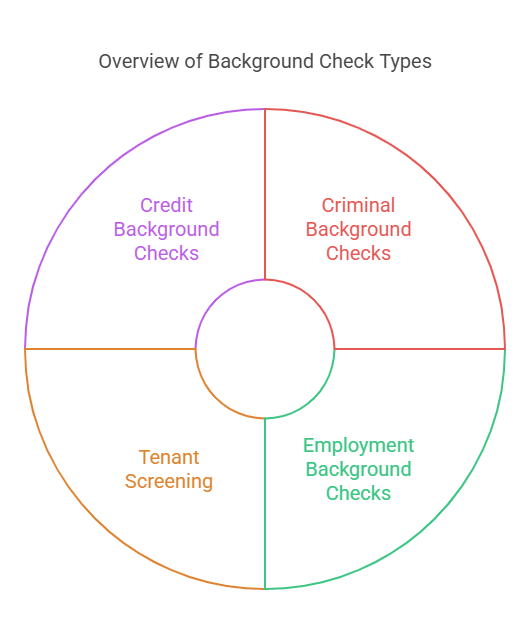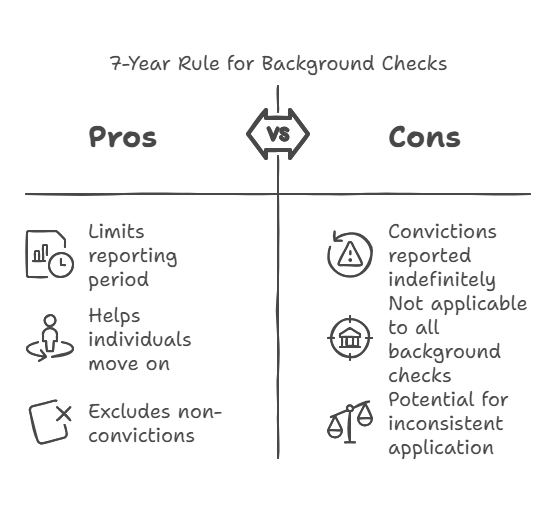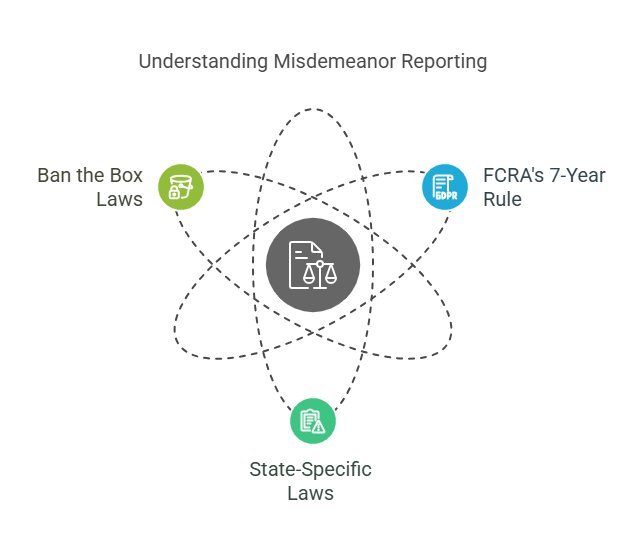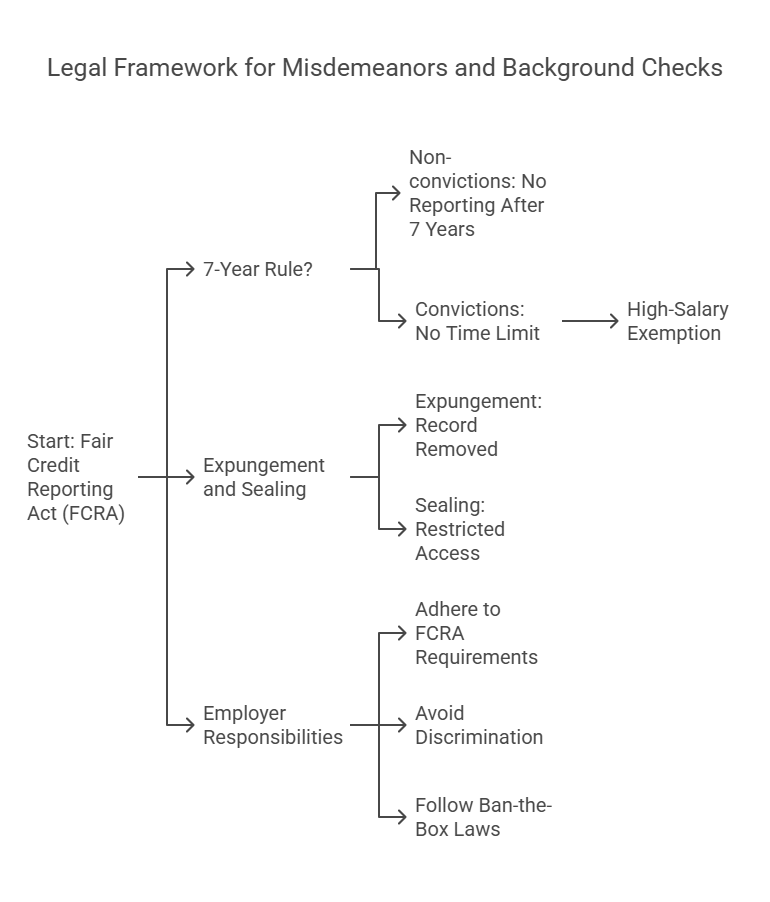Do Misdemeanor Appear on Background Checks After 7 Years?

Understanding Misdemeanors and Background Checks
A misdemeanor is a type of criminal offense that is generally less severe than a felony but more serious than an infraction. These offenses can include charges such as petty theft, DUI, simple assault, or vandalism. Misdemeanors are typically categorized by severity, with Class A (or Level 1) being the most serious and Class C (or Level 3) being the least. Punishments may involve fines, community service, probation, or jail time of less than one year, depending on the jurisdiction and the nature of the offense.
Understanding the distinction between misdemeanors and felonies is crucial when discussing background checks. Felonies usually involve more serious crimes, such as robbery, murder, or large-scale fraud, and carry harsher penalties, including lengthy prison sentences. Misdemeanors, on the other hand, are less stigmatizing but can still significantly impact an individual’s record and opportunities.
What Is a Background Check?
A background check is a comprehensive review of an individual’s history, typically conducted to evaluate their suitability for employment, housing, or other opportunities. These checks can include various records such as criminal history, credit reports, education verification, and employment history. Employers, landlords, and other organizations use background checks to ensure the safety, reliability, and trustworthiness of the individuals they interact with.
Types of Background Checks:

- Criminal Background Checks – Focused on identifying arrests, charges, and convictions.
- Employment Background Checks – Often include criminal history, work history, and professional licenses.
- Tenant Screening – Used by landlords to review criminal records, credit reports, and eviction history.
- Credit Background Checks – Used in industries like finance to assess financial responsibility.
When a criminal background check is conducted, misdemeanors often appear, especially if they resulted in a conviction. The extent to which misdemeanors are included depends on the scope of the check and the reporting laws in the jurisdiction.
The Role of Misdemeanors in Background Checks
Misdemeanors are typically documented in public records, which means they can show up on criminal background checks. Whether or not they appear depends on factors such as:
- The type of background check being conducted (e.g., federal, state, or local).
- The nature of the misdemeanor (e.g., traffic violations may not be included in certain checks).
- Time elapsed since the misdemeanor occurred.
In most cases, misdemeanors will appear in background checks conducted by employers, landlords, or licensing boards unless the record has been expunged or sealed.
What Is the “7-Year Rule” for Background Checks?

The “7-year rule” refers to a provision under the Fair Credit Reporting Act (FCRA) that limits the reporting of certain negative information, including criminal records, to a maximum of seven years. However, this rule applies primarily to arrests that did not result in a conviction. For misdemeanors that led to a conviction, the 7-year rule does not necessarily apply.
Key Points About the 7-Year Rule:
- Non-convictions (e.g., charges dismissed or dropped) are typically excluded from background checks after seven years.
- Convictions, including misdemeanors, may still appear indefinitely unless state laws impose stricter limits.
- The rule applies to consumer reporting agencies (CRAs) but may not cover all types of background checks, especially those conducted by government entities.
Factors Impacting the 7-Year Rule for Misdemeanors
The applicability of the 7-year rule depends on several variables, including:
- State Laws: Some states, such as California, New York, and Texas, limit the reporting of criminal records to seven years, even for convictions.
- Type of Background Check: Federally regulated industries or roles involving high-security clearance may report misdemeanors beyond seven years.
- Industry-Specific Regulations: Certain sectors, like healthcare or finance, often require more comprehensive background checks that may override the 7-year rule.
Factors Influencing Whether Misdemeanors Show Up After 7 Years

How State and Federal Laws Impact Reporting
The visibility of a misdemeanor on a background check after seven years is primarily influenced by legal guidelines at both the state and federal levels. The Fair Credit Reporting Act (FCRA) establishes the foundation for reporting criminal records, but state-specific laws often modify or expand on these rules. Let’s break down the key legal factors:
- The FCRA’s 7-Year Rule
- Under the FCRA, negative information such as arrests not leading to convictions must be excluded from consumer background reports after seven years.
- However, this rule does not apply to convictions. Misdemeanors that result in a conviction can still appear on background checks unless state laws dictate otherwise.
- State-Specific Laws
Several states impose stricter rules for reporting criminal records than the FCRA:- California: Prohibits reporting of convictions older than seven years, regardless of severity.
- New York: Has similar restrictions to California for non-criminal convictions and lower-level offenses.
- Texas: Follows the FCRA closely but enforces a seven-year limit for most criminal records in employment background checks for positions paying less than $75,000 annually.
- Illinois, Kansas, and Montana: Restrict reporting to seven years for many criminal records.
On the other hand, states like Florida and Georgia have no specific time limits, allowing misdemeanors to remain on background checks indefinitely unless expunged.
- “Ban the Box” Laws
Many states and localities have implemented “ban the box” legislation, preventing employers from asking about criminal records on job applications. While this doesn’t erase misdemeanors, it delays disclosure until later in the hiring process.
Industry Regulations and Employer Policies
Some industries are bound by strict regulations that may require more thorough background checks, often disregarding the FCRA’s 7-year rule or state-imposed time limits.
- Regulated Industries
- Healthcare: Employers in this sector often require extensive criminal background checks to comply with federal and state healthcare regulations. Misdemeanors like theft or drug-related offenses may still appear, regardless of when they occurred.
- Finance: Financial institutions follow stringent guidelines under laws such as the Financial Industry Regulatory Authority (FINRA). Convictions, including misdemeanors, are likely to appear on these checks indefinitely.
- Education: Schools and daycare centers often require lifetime background checks for individuals working with children. Misdemeanors involving violence or child-related offenses are flagged regardless of age.
- Employer Discretion
Employers in non-regulated industries may still choose to conduct comprehensive background checks that include older misdemeanors. Private companies are not obligated to exclude records that legally appear in public databases unless state laws impose limitations.
Types of Background Checks and Their Scope
The type of background check conducted directly influences whether misdemeanors older than seven years show up. Below are the most common types:
| Type of Background Check | Scope | Misdemeanor Reporting |
|---|---|---|
| Standard Employment Check | Local/state databases | May exclude older misdemeanors depending on state laws. |
| Federal Background Check | National-level checks | Convictions (misdemeanors or felonies) often appear indefinitely. |
| Tenant Screening | Criminal history and eviction records | Some states enforce seven-year limits for reporting. |
| Level 1 Background Check | State-level | Covers misdemeanors and felonies within state limits. |
| Level 2 Background Check | Nationwide with fingerprinting | Comprehensive and may include older misdemeanors. |
States With 7-Year Reporting Limits vs. No Time Limits
To simplify, here’s a comparison of states with and without 7-year reporting limitations:
| States With 7-Year Limits | States With No Reporting Limits |
|---|---|
| California, New York, Texas, Illinois | Florida, Georgia, Arkansas, Alaska |
| Kansas, Montana, Maryland | Indiana, Kentucky, West Virginia |
| Nevada, Washington, New Mexico | Michigan, Maine, Vermont |
Note: Laws may vary for specific industries or roles.
The Role of Expungement and Sealing
Expungement and record sealing play a critical role in determining whether a misdemeanor appears on a background check after seven years.
- Expungement: When a record is expunged, it is legally erased, and most background checks will no longer report the offense. This process typically requires meeting specific conditions, such as completing probation or demonstrating good behavior.
- Record Sealing: Sealing restricts public access to a criminal record, but certain entities, such as law enforcement or government agencies, may still view the information.
In states where expungement or sealing is available, individuals can significantly reduce the chances of older misdemeanors affecting their opportunities.




